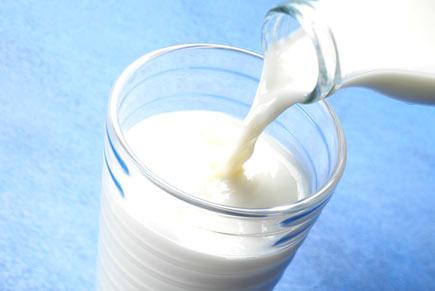A new study has tried to understand why it was so advantageous to drink milk in different parts of the world over the last 10,000 years

Milk consumption, benefits of drinking milk, dairy products, Health, Life & Style
Washington: A new study has tried to understand why it was so advantageous to drink milk in different parts of the world over the last 10,000 years.
Mutations that enabled lifelong milk drinking appeared independently in several parts of the world over the last 7,500 years, according to growing evidence. And those genes spread rapidly.

Representational picture
Today, about a third of adults around the world can drink milk without stomach problems, a trait known as lactase persistence.
The study debunks one leading theory: that milk provided a valuable source of vitamin D, which would’ve helped people absorb its calcium.
Newly analyzed human skeletons from an ancient site in Spain show that the milk-drinking gene spread just as rapidly in that sun-drenched climate as it did in other places, suggesting that milk must have been beneficial there for some reason other than its vitamin D content.
Oddny Sverrisdottir, an evolutionary biologist at the University of Uppsala in Sweden said that throughout the years, she has heard so many evolutionary hypotheses about lactase persistence because they are so fun to coin.
She said that for decades now, people have hypothesized that it was because of lack of sunlight in the north of Europe that people would have had to supplement the lack of calcium and vitamin D by drinking milk.
Now, looking at this picture from Spain, she added that the calcium-assimilation hypothesis either didn’t affect the evolution of lactase persistence at all, or other forces were there as well.
Sverrisdottir has long been interested in how and why Europe’s early farmers began drinking milk, so she was excited when she got her hands on well-preserved samples of skeletal remains from eight people who lived in northeastern Spain about 5,000 years ago.
That was well after the milk-drinking mutation had appeared in northern Europe, and she was eager to find out if those ancient Spaniards were drinking milk, too. So the first thing she did was test their DNA for lactase persistence.
To figure out whether the recent and rapid spread of lactase persistence in Spain was a fluke or if natural selection was at play, Sverrisdóttir and colleagues compared the mitochondrial DNA of modern Spaniards with the ancient samples. Mitochondrial DNA changes very slowly, making it ideal for tracing family trees over time.
The researchers report that the analyses showed that the ancient cave dwellers were indeed ancestors of people who live and frequently drink milk in Spain today.
The new findings can’t answer that question, but Sverrisdottir has a favorite theory. Early farmers were eating cheese and yogurt long before they could drink milk because fermented dairy products are easier to digest. But in times of famine, when crops failed and all of the processed dairy foods had been consumed, people would have turned to milk out of desperation.
Those who happened to have a lurking mutation that helped them digest it would’ve thrived while those who were lactose intolerant would’ve ended up with life-threatening diarrhea.
The study is published in the journal Molecular Biology and Evolution.
ADVERTISEMENT
 Subscribe today by clicking the link and stay updated with the latest news!" Click here!
Subscribe today by clicking the link and stay updated with the latest news!" Click here!







